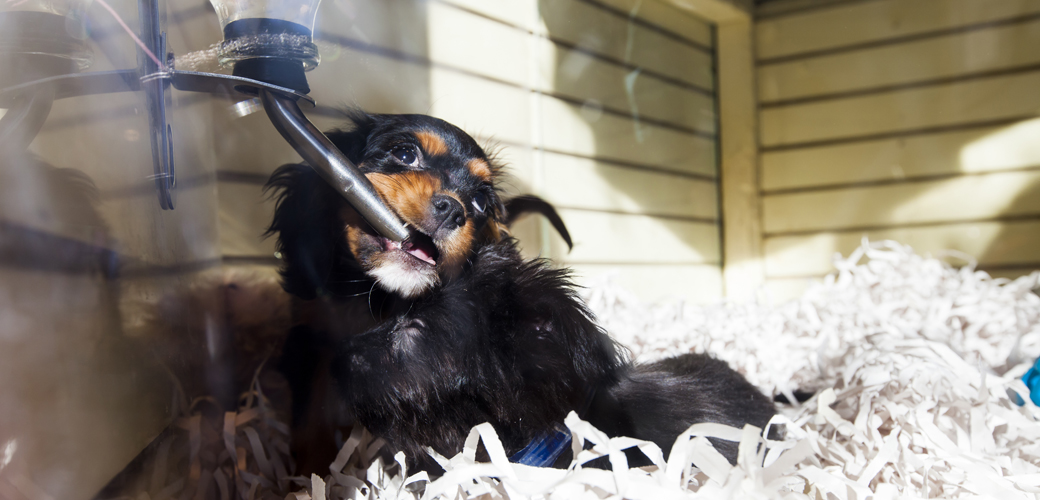
Five Questions the Puppy Industry Doesn’t Want Dog Lovers to Ask

All too often we hear from people who are confused by information they’ve been given by a pet store or read on a puppy-selling website. This is not surprising to us, because the information is designed to deceive—to give potential customers false assurances that the puppies being sold are healthy, happy and came from responsible breeders. Here are the real answers to five questions the puppy industry doesn’t want you to ask.
What does “USDA-licensed” really mean?
A U.S. Department of Agriculture (USDA) license is not an indication of quality. It means that a facility is a commercial breeder, licensed to sell to pet stores and online to buyers they haven’t met—something responsible breeders don’t do. USDA-licensed facilities must legally provide certain standards of care to their dogs, but those standards are minimal and poorly enforced. USDA on-site inspections are infrequent and violations typically go unpunished.
What does a breeder need to do to get AKC registration for their puppies?
An American Kennel Club (AKC) registration, similar to a USDA-license, is not a guarantee of good living conditions and signifies nothing about the health or quality of a puppy. It is available to any dog breeder who can show on paper that the mother and father of the puppy were the same breed—nothing more.
Do pet sellers travel to breeders to select the puppies they sell?
Pet store puppies are sourced from commercial breeders (a.k.a. puppy mills). These facilities are most concentrated in Midwestern states like Missouri, Iowa and Ohio [map] and have lots of breeds and puppies available. Most pet stores order puppies weekly from these large facilities through online order forms, then have the puppies trucked or flown across the country without ever seeing where the puppies come from. Even worse, pet stores often make false “no puppy mill” promises or claim to have “zero tolerance” for cruel breeding. And since customers don’t see where the puppies came from, they can be easily deceived.
Was the mother of the puppies sold in pet stores or an online puppy marketplace someone’s pet?
Pet stores and online sellers want you to think that puppies were born in a home environment to a caring breeder who bred their family pet. It is their business to present a spotless, wholesome image so customers won’t think about where the puppies are born or how breeding dogs are treated. In reality, the mother of a pet store puppy lives in a commercial facility, crammed into a filthy, overcrowded cage, and denied healthy food, clean water and basic veterinary care. Her job is to have puppies over and over again, without any rest or screening for diseases. She is not someone’s pet.
How much did that pet store puppy actually cost?
Getting a puppy from the Midwest to a pet store in a faraway state, like Florida or New York, involves several businesses, all of which seek to maximize profit. Commercial breeders, middlemen who obtain puppies from puppy mills in bulk and distribute them to retailers, truck drivers who transport puppies across the country, and pet stores themselves all need to make money off the same puppy, so puppy prices are marked up considerably. It is not unusual for a pet store to sell a puppy who was purchased from a puppy mill for a few hundred dollars (or less) for several thousand.
You can avoid turning a blind eye to cruelty. Sign our petition if you feel the USDA should step up and truly protect vulnerable animals, instead of licensing cruel breeders who perpetuate the cycle of puppy industry cruelty. And if you are looking for a dog, please consider visiting a shelter or rescue—or working with a responsible breeder—to find your next pet.
